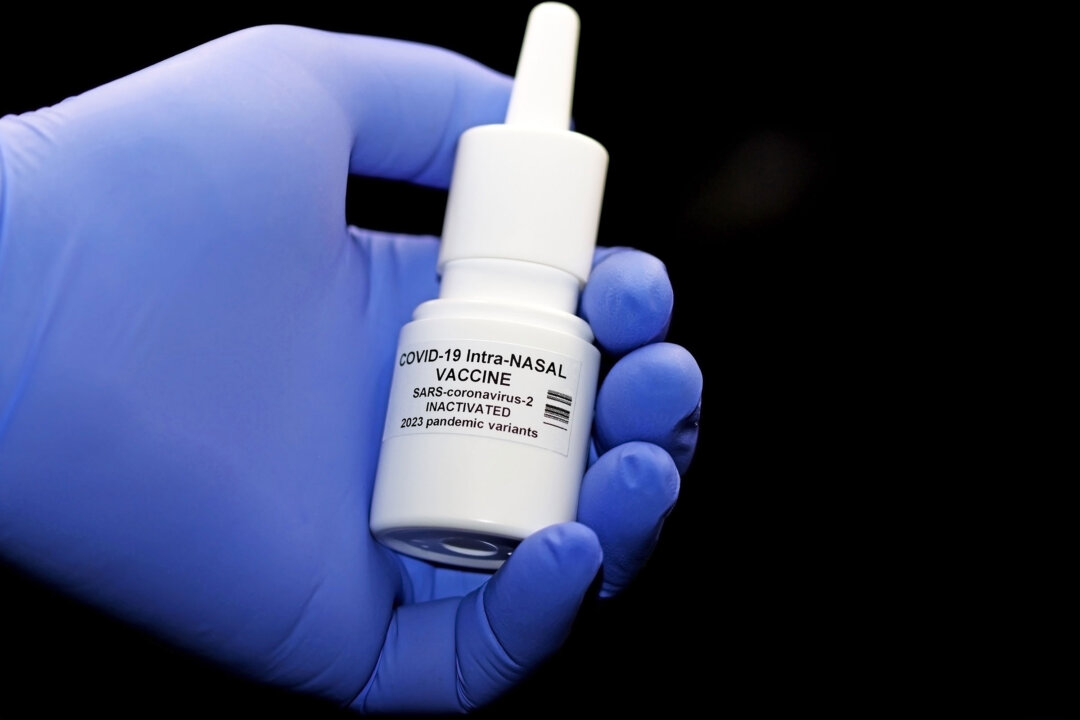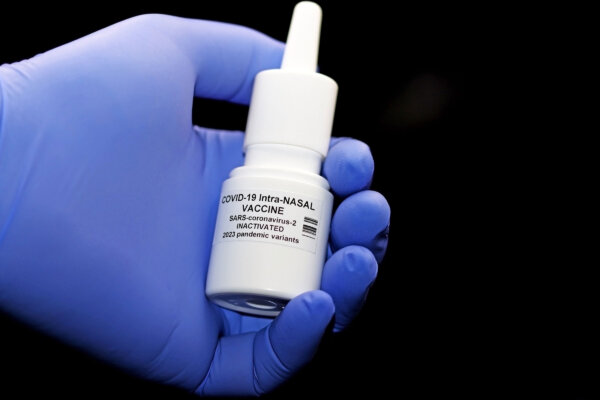Large-Scale Intranasal COVID-19 Vaccine Clinical Trial to Come, Involving 10,000 Participants
The phase 2b study, which will begin in the fall of 2024, will evaluate the vaccine in a subset of participants at a higher risk of severe disease.
University of Georgia-based startup CyanVac LLC received $40 million in federal funding on Wednesday to launch its intranasal COVID-19 vaccine clinical trial.
According to a University of Georgia (UGA) press release, CyanVac will sponsor a randomized, double-blind phase 2b study with 10,000 participants to compare the vaccine’s efficacy and safety against an FDA-approved mRNA-based COVID-19 vaccine.
This could be the largest clinical trial of a COVID-19 intranasal vaccine in the United States.
Unlike the mRNA-based COVID-19 vaccines on the market, which are injected intramuscularly, CyanVac’s vaccine, CVXGA, is inhaled through the nose.
Additionally, the vaccine will not use the lipid nanoparticle platforms used in the mRNA vaccines. Instead, the formula will be delivered via a genetically modified strain of parainfluenza virus 5. This canine virus causes kennel cough in dogs but is harmless to humans. according to CyanVac.
The canine virus will be genetically edited to carry genes for the COVID-19 spike protein. Inhaling the virus will induce spike protein production.
The phase 2b study will begin in the fall of 2024. A prior trial to test vaccine safety, which recruited 227 people, is ongoing.
Intranasal Vaccines May Reduce Mild Infections
Dr. William Schaffner, professor of preventive medicine at Vanderbilt University Medical Center, who is not involved in the research, told The Epoch Times that intranasal vaccines have potential benefits that intramuscular vaccines cannot offer.
Intranasal vaccines may encourage COVID-19 vaccine uptake among people opposed to the mRNA vaccines or those concerned about getting a needle poke in the arm. They are also easier to administer and may be more kid-friendly, enabling children to get pain-free immunizations.
Dr. Schaffner speculated that these vaccines may also prevent viral transmission and infection.
Intranasal vaccines afford immunity to immune cells in the nose, throat, and lungs, serving as early contact points for the virus. These immunized cells could then help reduce the early viral load and prevent transmission, Dr. Schaffner explained.
“Currently available vaccines prevent serious illness, but they cannot prevent mild illness that occurs on initial contact with the virus,” he said. However, if the immune cells in the nose and throat can successfully clear the virus so that the infection does not go past the lungs, those infected might only have mild infections.
However, inhaled vaccines may lead to vaccinated people accidentally inoculating those around them by exhalation.
“That is a matter of interest, and that also was a matter of interest when the intranasal influenza vaccine was developed, and it turned out that spread happened very, very rarely, if at all,” Dr. Schaffner said.
“I could argue that a little bit of spread is a good thing as long as it continues to be harmless. If you, in contact with others, transmitted the vaccine virus to them, they, too, would become protected,” he said.
Funding Comes From a $5 Billion Project
CVXGA’s funding comes from the U.S. Department of Health and Human Services’ $5 billion Project NextGen.
Project NextGen’s purpose is “enhancing preparedness for future COVID-19 strains & variants with next generation medical countermeasures,” according to its website.
On Thursday, the project awarded $500 million to studies on oral and nasal COVID-19 vaccines, with $453 million given to San Francisco-based Vaxart, a biotechnology company that develops oral recombinant vaccines, for a study to evaluate its oral COVID-19 vaccine. The move has more than doubled the value of the company’s market shares.
While severe COVID-19 cases have become less prominent, Dr. Schaffner said there is still the risk that a more serious variant may surface.
“The notion is [that] prevention is medicine’s most noble goal,” he said.






